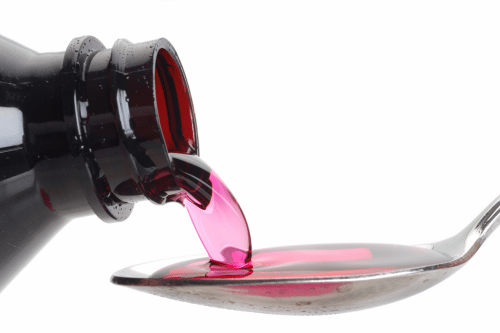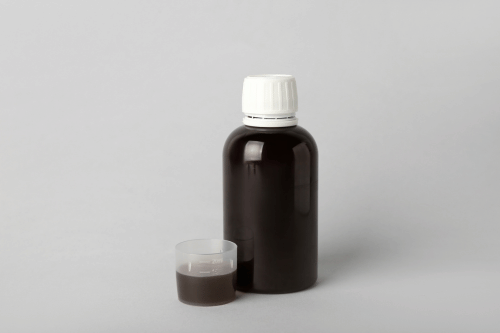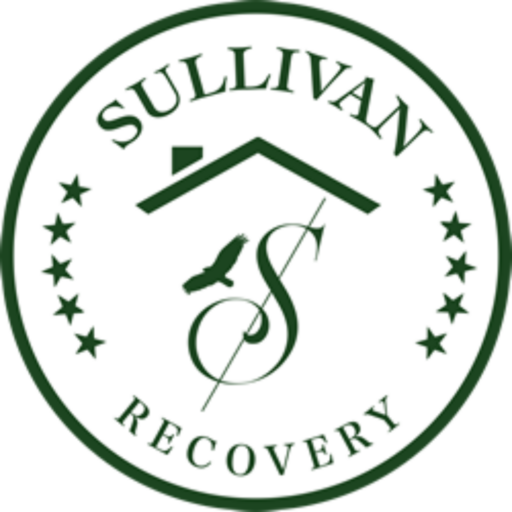

The combination of DXM (dextromethorphan) and alcohol is more common than one might think, especially among those experimenting with substance use. DXM is widely available in over-the-counter cold medicines, while alcohol is legal and socially accepted. However, combining these substances can lead to severe health consequences, particularly for those already dealing with substance abuse or addiction. In this article, we will explore the effects, dangers, and reasons why mixing DXM and alcohol is a risky and potentially life-threatening choice.
Dextromethorphan (DXM) is an active ingredient in many over-the-counter cough and cold medications. It is primarily used as a cough suppressant and is found in products such as Robitussin, NyQuil, and other cough syrups. At the recommended dosage, DXM is safe and effective for treating coughs associated with colds and other respiratory conditions. However, at higher doses, DXM produces dissociative and hallucinogenic effects, which has led to its misuse, particularly among teenagers and young adults. It is important to note that drinking alcohol while using DXM can increase side effects and prolong illnesses, making it crucial to avoid alcohol to support recovery.
DXM is classified as a dissociative drug when taken in high quantities, causing users to experience a detachment from reality, altered perception, and in some cases, euphoria. This has made it a popular substance for recreational abuse, with some individuals intentionally consuming large amounts of cough syrup or cold medications to achieve these effects. This type of substance misuse has serious consequences, especially when combined with other depressants like alcohol.
Mixing DXM and alcohol is a recipe for disaster. Both substances are central nervous system depressants, albeit in different ways. Alcohol is a depressant that slows brain activity, impairs motor coordination, and lowers inhibitions. On the other hand, DXM, when abused, can cause dissociative effects, altered mental states, and delusional thinking. The combination of these effects places users at risk for a range of dangerous outcomes, including respiratory depression, impaired judgment, and life-threatening drug interactions.
Both alcohol and DXM suppress the CNS, but when combined, this suppression is amplified. The result can be extreme drowsiness, loss of coordination, and in severe cases, respiratory depression. Respiratory depression occurs when breathing becomes dangerously slow or shallow, potentially leading to coma or death. For individuals already dealing with substance abuse, this risk is magnified, making the combination even more dangerous. Additionally, mixing dextromethorphan with alcohol can amplify psychoactive side effects and lead to serious health issues, including irregular heart rates and toxicity.
The liver is responsible for metabolizing both alcohol and dextromethorphan. Taking these substances together puts excessive strain on the liver, leading to potential liver damage or even liver failure. Chronic alcohol use further exacerbates this risk by weakening the liver’s ability to process toxins, making it more vulnerable to damage from the combination of DXM and alcohol.

One lesser-known but potentially deadly risk of mixing DXM and alcohol is serotonin syndrome. Serotonin syndrome is caused by an excess of serotonin in the brain and can occur when substances that increase serotonin levels are taken together. Symptoms include agitation, rapid heart rate, high blood pressure, confusion, and seizures. Those who are already taking medications like antidepressants that affect serotonin levels are at a particularly high risk of developing serotonin syndrome when mixing DXM and alcohol.
The combination of DXM and alcohol not only impacts the physical body but also significantly affects mental health. Alcohol is a depressant that can exacerbate feelings of anxiety and depression, while high doses of DXM can cause hallucinations, delusional thinking, and dissociation. The interaction of these substances can lead to panic attacks, heightened anxiety, and even episodes of psychosis in susceptible individuals.
Mixing DXM and alcohol can also result in gastrointestinal discomfort, nausea, vomiting, and diarrhea. Additionally, both substances can cause blood pressure fluctuations, which can be particularly dangerous for individuals with pre-existing health conditions. High doses of DXM, when combined with alcohol, can lead to dangerously high blood pressure, increasing the risk of heart attacks and strokes.
For those who misuse DXM and alcohol together, there is a significant risk of developing drug abuse and a substance use disorder. Many individuals who experiment with these substances may begin with recreational use but quickly develop a dependency. Over time, this pattern of misuse can lead to both physical and psychological addiction, requiring professional treatment to overcome. Misuse of substances can lead to drug addiction, highlighting the importance of understanding the dangers associated with mixing these substances.
The appeal of mixing DXM and alcohol often lies in the intense and disorienting effects it produces. However, these short-lived highs come at a steep cost. Chronic use of these substances can lead to irreversible damage to vital organs, cognitive decline, and severe mental health issues. The cycle of addiction becomes more entrenched as individuals develop tolerance, leading them to consume higher doses and take more risks to achieve the desired effects.

One reason why the abuse of DXM and alcohol is so common is accessibility. DXM is easily available in over-the-counter cough and cold medications, making it easy for individuals to misuse it without raising suspicion. Similarly, alcohol is widely accepted and easily accessible, even for those underage in some cases. The combination of these two readily available substances makes them a popular choice for those seeking to experiment with substance use.
Additionally, the misuse of DXM is often glamorized in certain social circles, particularly among young adults and teenagers. Online communities and forums sometimes promote the recreational use of DXM, sharing tips on how to “trip” safely, which can lead to dangerous misinformation. This, coupled with the normalization of alcohol consumption, creates a dangerous environment where mixing these substances becomes appealing. American Addiction Centers provide support and treatment options for individuals struggling with addiction.
It’s important to recognize the warning signs of DXM and alcohol abuse, whether in yourself or others. Some common signs include:
Frequent use of cough syrup or cold medications without being sick.
Mixing alcohol with over-the-counter medications.
Changes in behavior, such as increased secrecy, withdrawal from social activities, and erratic behavior.
Physical symptoms like slurred speech, lack of coordination, nausea, and dizziness.
Mental health changes, including increased anxiety, paranoia, hallucinations, or depression.
If you notice these signs, it’s crucial to seek professional help. Early intervention can prevent the escalation of substance use into full-blown addiction and reduce the risk of severe health consequences.
Recovering from addiction is possible with the right support and treatment. For those struggling with DXM and alcohol abuse, seeking professional help is the first step toward recovery. Sullivan Recovery offers comprehensive addiction treatment tailored to the unique needs of each individual.
The detoxification process is often the first step in treating substance use disorders. During this stage, the body is safely rid of the substances while managing withdrawal symptoms under medical supervision. Withdrawal from both DXM and alcohol can be challenging, as it may include symptoms such as anxiety, irritability, insomnia, and physical discomfort. Medical detox ensures that these symptoms are managed safely, reducing the risk of complications.
After detox, therapy plays a crucial role in addressing the underlying causes of addiction. Cognitive-behavioral therapy (CBT) and other therapeutic approaches help individuals identify triggers, develop healthy coping mechanisms, and rebuild their lives free from substance use. Group therapy, individual counseling, and family therapy are often part of a comprehensive treatment plan.
Recovery is a lifelong process, and continued support is essential to maintaining sobriety. Aftercare programs, such as outpatient counseling, support groups, and 12-step programs, provide ongoing assistance and accountability. These resources help individuals stay committed to their recovery goals and navigate the challenges of life without substances.
For individuals who struggle with both substance use and mental health disorders, integrated treatment is essential. Dual diagnosis treatment addresses both conditions simultaneously, providing holistic care that supports both mental and physical health. This approach is particularly important for those with underlying anxiety, depression, or trauma that may contribute to substance misuse.
Mixing DXM and alcohol is a dangerous practice with potentially life-threatening consequences. While these substances are easily accessible, their combination poses significant risks, including respiratory depression, liver damage, mental health crises, and addiction. Whether someone is experimenting with substances or already battling substance use disorders, it’s critical to understand the dangers of this combination.
For those struggling with DXM and alcohol abuse, seeking professional treatment is the first step toward recovery. Sullivan Recovery offers specialized programs designed to help individuals overcome addiction and reclaim their lives. With the right support, it’s possible to break free from the cycle of substance misuse and build a healthier, sober future.
If you or a loved one is affected by cough medications and alcohol addiction, don’t wait until it’s too late— reach out for help today. Recovery is possible, and it starts with taking the first step toward treatment and a better life.

At Sullivan Recovery, as an in-network provider we work with most insurance plans, such as:
And More
If you or a loved one are struggling with mental health challenges or substance abuse, reach out to Sullivan Recovery today. Our team of compassionate professionals is here to support your journey towards lasting well-being. Give us a call at 949-836-7180.
DXM (Dextromethorphan) is a common ingredient in over-the-counter cough and cold medications. When mixed with alcohol, both substances can amplify each other’s depressant effects on the central nervous system, leading to severe impairments, respiratory distress, and even life-threatening consequences.
Combining DXM and alcohol increases the risk of dangerous side effects like dizziness, impaired motor function, hallucinations, nausea, and breathing difficulties. The interaction can also heighten the potential for overdose, leading to serious health emergencies or death.
The combination of DXM and alcohol can lead to heightened feelings of confusion, anxiety, and depression. This dangerous mix can also exacerbate existing mental health issues, making recovery and treatment more difficult for individuals struggling with substance abuse or mental health disorders.
If someone has taken both DXM and alcohol and shows signs of severe intoxication—such as difficulty breathing, loss of consciousness, or extreme confusion—seek emergency medical help immediately. Acting quickly can prevent long-term damage or even save a life.